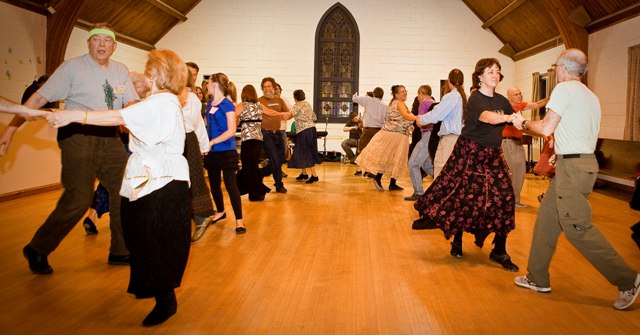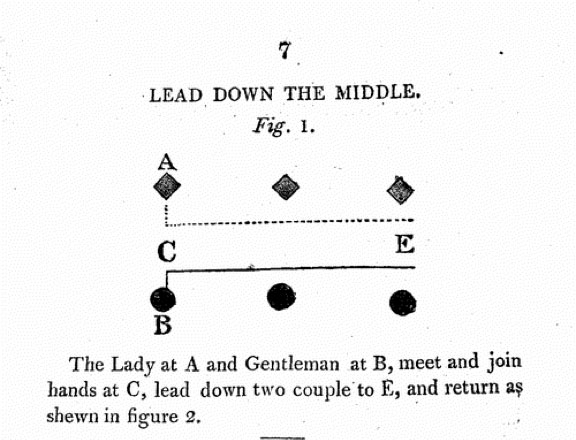Contradance
From Londonhua WIKI
Contra Dance
 | |
| Contra Dance |
|---|
Overview
Contra Dancing, also known as Country Dancing, is a style of social folk dance in which long lines of dancers come together, pair off, perform a series of prescribed movements, and separate again. Contra Dance was the most popular form of ballroom dance enjoyed in Europe from the 17th to 19th centuries [1].
Background
 | |
| Lead Down The Middle | |
|---|---|
| Artist: | Thomas Wilson |
| Date: | Printed in 1808 |
Modern Contra Dance is first documented in John Playford's 1651 text "The Dancing Master," in which he provided instructions and music for one hundred fifty dances [2]. The name "Contra Dance" comes from the French "Contredanse," referring to the way in which lines of dancers face each other, and is sometimes translated as "Country Dance [3]." Contra dance is an "open couple" dance. This means that dancers have limited physical contact with one another and interact with many different partners over the course of a single dance [4]. Most typically, dancers come together, complete a figure, and then return to their place in the line.
References
- ↑ Contra Dance - History of Contra Dancing. (n.d.). Retrieved May 10, 2017, from http://www.dancefacts.net/dance-list/contra-dance/
- ↑ Wilson, C. A. (n.d.). The Arrival of the Waltz in England, 1812. BRANCH. Retrieved May 9, 2017, from http://www.branchcollective.org/?ps_articles=cheryl-a-wilson-the-arrival-of-the-waltz-in-england-1812
- ↑ Wilson, C. A. (n.d.). The Arrival of the Waltz in England, 1812. BRANCH. Retrieved May 9, 2017, from http://www.branchcollective.org/?ps_articles=cheryl-a-wilson-the-arrival-of-the-waltz-in-england-1812
- ↑ Wilson, C. A. (n.d.). The Arrival of the Waltz in England, 1812. BRANCH. Retrieved May 9, 2017, from http://www.branchcollective.org/?ps_articles=cheryl-a-wilson-the-arrival-of-the-waltz-in-england-1812